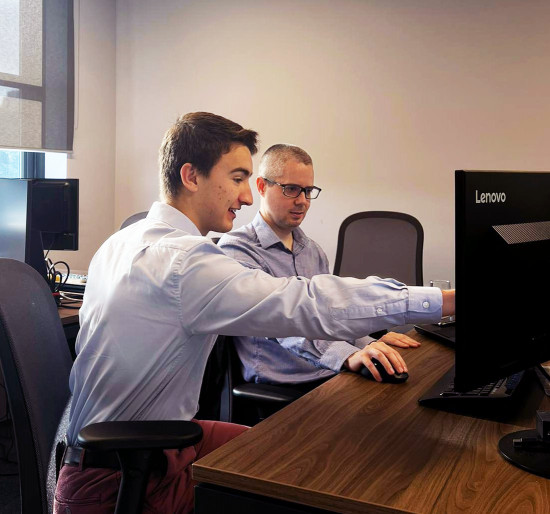Reflections from a summer intern
MaritimeMore to an internship than building skills
Thomas Billet has spent the last four months working as a summer intern at Marex, to complement his Naval Architecture degree at the University of Strathclyde.

Having told us earlier about his expectations, here he reflects on what he learned from the experience.
by Thomas Billet
With the last four months feeling like they have flown by, I find myself reflecting on this internship.
Looking back at my lack of familiarity with the subject, to being trusted now with large parts of projects, I realise how far I’ve come and what I can do if I put my mind to it.
Marex was very quick to start giving me more and more responsibilities.
This was quite daunting but I am thankful for the trust my manager had in me (risk manager and director Neil Smeaton) because this pushed me to learn and adapt in ways I never have before.
Document development
A contributing factor was definitely the size of the Marex team. Being smaller, I enjoyed the “all hands on deck” mentality, as well as the variety of work entrusted to everyone, as opposed to the greater degree of specialisation that would occur in a larger company.
I have developed many skills that was only possible due to the early delegation of responsibility by my manager.
My research skills have greatly developed due to their necessity for some of the projects.
From gaining a basic understanding of rocket science to familiarising myself with Dutch legislation, I look forward to applying the experience to my fourth-year dissertation when I return to university.
Document development is another skill of mine that I didn’t realise was in so much need of improvement.
After familiarising myself with the Marex document system, I realise just how unprofessional my university reports have looked until now.
I aim to bring this professionalism back to university and wherever I go after that because the Marex standard seems to be at an elevated level.
Inside industry
Indeed I have a new-found appreciation for the principles of running an efficient business and how all fits together.
But there’s been more to this internship than just building my skills.
It’s given me an inside view of the industries my naval architecture and marine engineering course specialises in. I have become very familiar with the big names in the industry and I have been surprised by the gaps in my knowledge before this internship.
Although there is very little technical overlap between engineering and risk assessment, the basic principles of receiving client specifications, ensuring compliance with regulations, and producing reports are all the same.
But I felt this lack of engineering technicality and I would be lying if I said I did not miss it. That said, I strongly suggest to all engineers that are unsure about future careers to consider risk assessment. There are so many industries that rely on risk assessment and management that one is bound to interest you and your transferable skills allow for a seamless transition.
I would like to think that Marex has also benefitted from this relationship.
Hosting an internship is less risky than hiring a new employee due to the short duration and if things go well, it can develop into a relationship with an experienced graduate.
I also hope that Marex develops its relationship with the Strathclyde Naval Architecture department.
I am currently still invested in engineering and don’t think I can turn my back on it just yet but if it ever loses its charm, I will know that risk assessment will always be there as an interesting and enjoyable career path.










